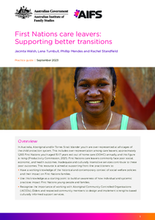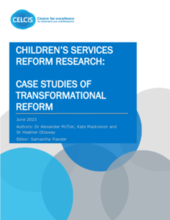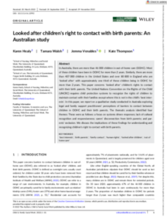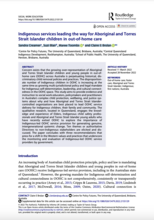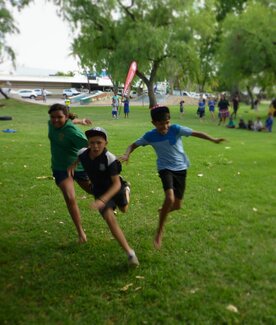

Displaying 61 - 70 of 677
This resource is aimed at supporting front-line practitioners in Australia to have a working knowledge of the historical and contemporary context of social welfare policies and their impact on First Nations families and to use this knowledge as a starting point to build an awareness of how individual and systemic practices impact First Nations young people and families.
Case studies of transformational reform programmes examined a range of approaches to the delivery of children’s services to better understand the evidence regarding systems-level integration between children’s social work/social care with health services and/or adult social care.
This Family for Every Child podcast episode explores the context for children and young people with care experience in New Zealand.
In this paper, the authors report on a qualitative study conducted in Australia exploring practitioners' perceptions of barriers to contact between children in out-of-home care and their birth parents.
One of Australia’s leading Indigenous child welfare advocates has told a Victorian truth-telling inquiry that permanent care orders and “racist” carers are severing links between some First Nations children and their culture.
Child protection workers within the former Department of Health and Human Services were racist and disparaging towards the Aboriginal families and community-controlled organisation they were supposed to be working with to keep children safe, the Yoorrook Justice Commission has heard.
This study aims to provide evidence and instruction to social work educators, policymakers and practitioners
in Australia’s child protection, wellbeing, and justice systems about why and how Aboriginal and Torres Strait Islander controlled organizations are best placed to lead out-of-home care service delivery for Indigenous children, their family and community.
Queensland child safety authorities have quietly ditched a "racially biased" decision-making tool that had been widely used for years. The move came on the back of preliminary findings from a Queensland expert comparing the tool's accuracy across Indigenous and non-Indigenous children. The tool, known as the Structured Decision Making model, was used to rate children on their risk of harm and help authorities decide whether to intervene.
The latest Family Matters report released by the Secretariat of National Aboriginal and Islander Child Care, an Australian non-governmental peak body for Aboriginal and Torres Strait Islander children – reveals that there are there more than 22,000 Aboriginal and Torres Strait Islander children in out-of-home care.
In 2020, an agreement between the Australian federal government, the Coalition of Peaks, all state and territory governments and the Australian Local Government Association (ALGA) was struck, aiming to renew ways of working together to improve outcomes for Indigenous Australians. This report is the first since the national agreement on Closing the Gap took effect and shows many of the targets are not on track.

